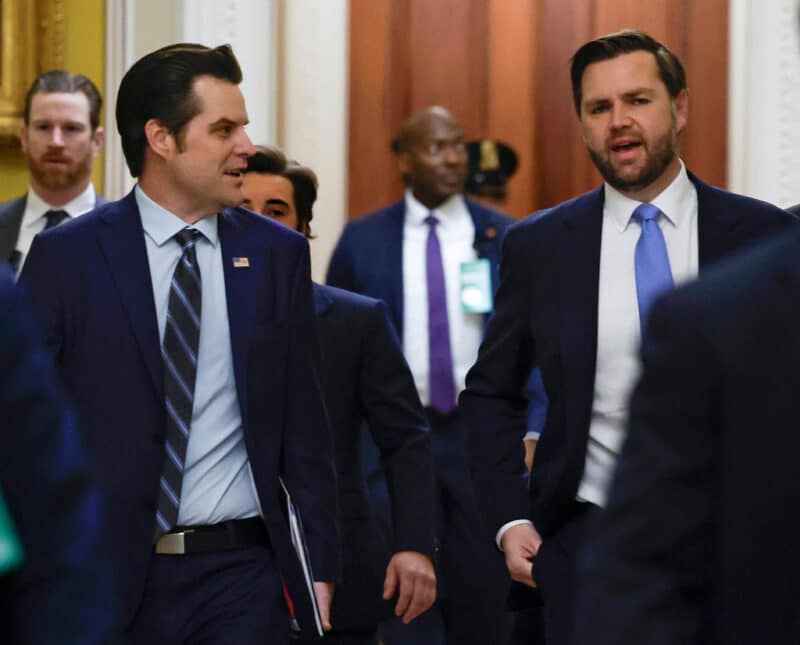Bring In The Clowns: How Every Donald Trump Appointment is Unqualified
President-elect Donald Trump has announced a series of high-profile nominations for his administration, but many of the selections have drawn criticism for their controversial pasts and perceived lack of qualifications for the roles. Here’s a detailed breakdown:
Key Cabinet Nominations
Secretary of State: Marco Rubio
While Rubio has extensive foreign policy experience as a senator, critics point to his inconsistent stances on issues like U.S.-Cuba relations and his lack of executive leadership experience. Rubio has also faced scrutiny for his financial management during his time in state politics, including misuse of a Republican Party credit card.
Attorney General: Matt Gaetz
Gaetz’s nomination is highly controversial due to ongoing investigations into alleged sex trafficking and his use of campaign funds for personal expenses. Critics argue that Gaetz’s contentious history makes him unsuitable to oversee the nation’s legal system and Department of Justice.
Secretary of Defense: Pete Hegseth
Hegseth, a Fox News commentator, has limited defense policy experience beyond his military service. His critics cite allegations of sexual harassment during his time at Veterans Affairs and his public dismissal of the COVID-19 pandemic’s severity, questioning his judgment in crisis situations.
Secretary of Health and Human Services: Robert F. Kennedy Jr.
Kennedy, an environmental lawyer, is widely known for spreading vaccine misinformation. Public health experts argue his appointment undermines the credibility of HHS, which plays a central role in managing public health crises like pandemics.
Secretary of Homeland Security: Kristi Noem
South Dakota Governor Kristi Noem has faced scandals over her alleged misuse of state resources and favoritism in granting her daughter a real estate appraiser license. Critics question her lack of federal law enforcement experience.
Director of National Intelligence: Tulsi Gabbard
Though Gabbard is a former congresswoman with military experience, her frequent appearances on Russian state media and controversial stances on Syria have raised concerns about her alignment with U.S. intelligence priorities.
Director of the Central Intelligence Agency: John Ratcliffe
Ratcliffe, who previously served as Director of National Intelligence, has been accused of exaggerating his national security credentials. His prior tenure faced criticism for politicizing intelligence, raising doubts about his ability to lead the CIA impartially.
Administrator of the Environmental Protection Agency: Lee Zeldin
Zeldin has little experience in environmental policy and has consistently supported deregulation that benefits the fossil fuel industry. Environmentalists fear his appointment signals a rollback of critical protections.
Ambassador to the United Nations: Elise Stefanik
While Stefanik has legislative experience, her staunch loyalty to Trump and role in spreading election misinformation have led critics to question whether she can credibly represent U.S. interests on the global stage.
Ambassador to Israel: Mike Huckabee
Huckabee’s history of inflammatory comments about Islam and his controversial advocacy for Israeli settlements has drawn criticism from diplomats who argue his nomination undermines U.S. credibility in the region.
Secretary of Energy: Chris Wright
Wright, CEO of Liberty Energy, has been a vocal critic of renewable energy initiatives. Critics argue his nomination is a conflict of interest, given his ties to the fossil fuel industry.
Secretary of Transportation: Sean Duffy
Duffy, a former congressman and reality TV star, has no professional background in transportation or infrastructure. Critics have also pointed to his dismissive comments about minority communities during his time in Congress.
Secretary of Education: Linda McMahon
McMahon, a former WWE executive, has no experience in education policy. Critics argue that her focus on corporate interests could undermine public education.
Administrator of Centers for Medicare & Medicaid Services: Dr. Mehmet Oz
Dr. Oz, a television personality, has faced numerous accusations of promoting pseudoscience and unproven medical treatments. Public health officials argue that his nomination puts the credibility of CMS at risk.
White House Staff Appointments
Chief of Staff: Susie Wiles
Wiles, a longtime Trump confidante, has faced allegations of ethical violations related to lobbying and misuse of campaign funds, raising concerns about her ability to run the White House ethically.
Deputy Chief of Staff for Policy: Stephen Miller
Miller is widely criticized for his hardline immigration policies and his role in crafting the family separation policy. His return to the administration has drawn backlash from human rights organizations.
National Security Advisor: Michael Waltz
Waltz’s critics point to his limited experience in high-level diplomacy and his role in perpetuating false narratives about election fraud.
Press Secretary: Karoline Leavitt
At just 27, Leavitt’s appointment has raised questions about her preparedness. She has also been criticized for spreading election conspiracy theories during her time in political communications.
Communications Director: Steven Cheung
Cheung has faced scrutiny for his involvement in controversial social media campaigns during Trump’s previous administration, which critics argue damaged public trust in the presidency.
Special Initiatives
Department of Government Efficiency: Elon Musk and Vivek Ramaswamy
Critics of this newly created department argue that Musk’s leadership style and Ramaswamy’s lack of government experience make them unsuitable to oversee efficiency reforms. Both figures have been accused of prioritizing personal gain over public interest.
We’re screwed as a country. Godspeed.
Discover more from mecca
Subscribe to get the latest posts sent to your email.
